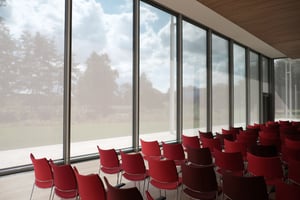 Join the InfoLit Learning Community now. Already a member?Log in here.
Join the InfoLit Learning Community now. Already a member?Log in here.
This fall’s freshmen students will likely bring with them an awareness of disinformation, popularly called “fake news,” making it something you might find yourself addressing in information literacy lessons. Returning students can benefit from reinforcement of the skills they already learned in this regard, followed by more advanced, scaffolded lessons on how to discern deception in materials they may find in the classes in their majors.
Some new books on the disinformation trend have been released lately, both for librarians and for general audiences. LibGuides and other educational resources on disinformation are happily also common. Please take a look at previous entries in this blog, too, as disinformation is something we frequently address, hearing from our customers that it is a topic they face.
In books, see Michiko Kakutani’s new The Death of Truth (Tim Duggan Books), which looks at developments the author says began years ago but that are now more apparent and widely discussed. ALA just released Nicole A. Cooke’s report Fake News and Alternative Facts, and Michelle Luhtala and Jacquelyn Whiting’s News Literacy: The Keys to Combating Fake News (Libraries Unlimited) just hit shelves, too. We will soon post reviews of these books in a regular information literacy book review column that you will see in Credo’s Learning Community
Librarians who contribute to the ILI-L (sponsored by ACRL’s Instruction Section) and FYE-L (sponsored by The National Resource Center for The First-Year Experience and Students in Transition listservs often offer knowledge on disinformation-banishing techniques as well as on myriad other aspects of information literacy. Recent relevant posts have included the following resources, which are worth a look while planning fall classes that tackle our current media environment.
Fake News LibGuide: California State University, Long Beach
Fake News Course: University of Michigan Library
Media Literacy and “Fake News”: Getting Started: Monmouth University Library
If part of your classroom plans for this fall include a discussion of how to refer to what the media calls “fake news,” you can also benefit from this Harvard Kennedy School PolicyCast in which the presenters beg for a ban on the media’s term. Which brings us to ask, what do you call this phenomenon? Please let us know in the comments and share your thoughts in the Credo InfoLit Learning Community! Sign up here to get started!
